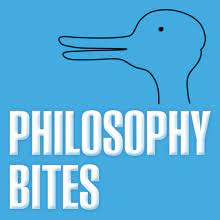
In this episode of “The Jordan B. Peterson Podcast,” Jordan Peterson interviews Aaron Smith-Levin, who shares his experience of growing up in Scientology and why he eventually left the organization. The conversation explores the difficulty of distinguishing truth from falsehood, the appeal of Scientology, and the personal impact of leaving the organization.
Aaron Smith-Levin shares his personal experience of growing up in Scientology and working for the organization full-time at a young age. He discusses the challenges of distinguishing truth from falsehood, particularly in organized falsehoods like Scientology. The conversation highlights the importance of evaluating information and determining which organizations can be trusted.
Scientology is presented as a technology that focuses on practical application and self-help rather than belief or faith. Aaron explains the factors that made Scientology attractive to his mother, including the lack of practical guidelines and a specific destiny in her previous religious training. The use of the emeter, which measures skin conduct and emotional arousal, adds scientific credibility to Scientology’s practices.
The conversation delves into the metaphysical aspects of Scientology, using Aaron’s experiences as an example. Scientology promises to help individuals resolve their reactive mind, which is seen as the source of negativity and personal struggles. The ultimate goal for Scientologists is to clear the majority of the Earth’s population from their reactive minds, shifting responsibility to something outside of oneself.
Scientology transitions from a mental therapy to a religion and spiritual philosophy by introducing the concept of Thetans and past lives. The discussion explores the belief in the upper unreleased OT levels, which promise new knowledge and abilities. Aaron shares his personal belief that the real magic of Scientology is still in the vault and that the current organizations will eventually release these levels for full perception.
Aaron discusses the repercussions he and his family faced after leaving Scientology, including losing their jobs and their children being expelled from Scientology schools. The conversation highlights the coercive practices within Scientology, such as pressuring women to get abortions and severing ties with family members. Aaron emphasizes the importance of evaluating information, distinguishing truth from falsehood, and the impact of hypocrisy within organizations.
The conversation with Aaron Smith-Levin provides valuable insights into the challenges of distinguishing truth from falsehood, particularly in organized falsehoods like Scientology. It sheds light on the appeal of Scientology and the metaphysical aspects of the organization. The personal impact of leaving Scientology is also explored, highlighting the coercive practices and repercussions faced by individuals and their families. Overall, the episode offers a thought-provoking exploration of the complexities surrounding belief systems and the importance of critical thinking.